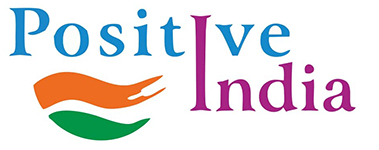

Positive India:Kanak Tiwari:
The Modi government in accordance with expectations and its political commitments has cleared Triple Talaq bill in the parliament which may be effectively codified on any date in near future subject to certain constitutional political and other handicaps that may not be discernible presently. Thereafter the government also appears to be working on its political conviction of equating the constitutional status of Jammu and Kahsmir which has been a bottleneck according to Sangh Parivar for around 70 years. The task although would be difficult yet appears that the government may venture for it in the ambition of making a Hindu Rashtra after having become the dominant majority in the parliament.
A yet another intriguing question taking the rounds would be about the Uniform Civil Code to effectuate the desire of the constituent assembly codified vide article 44 which reads “the State shall endeavour to secure for the citizens a uniform civil code throughout the territory of India.” The issue was originated in the constituent assembly and discussed on 23 November 1948 tabled as Article No. 35 in the draft constitution.
The political atmosphere in the country was callously surcharged even against the nationalist muslims who although had proved their allegiance by not choosing to go to Pakistan. The hallucination, horror and hatred spread due to the partition of the country and in its aftermath had by necessary offshoots ignited the so called vocal rightist nationalist parties and groups like Hindu Mahasabha and the Rashtriya Swayamsevak Sangh potently led by Vinayak Damodar Savarkar and M.S. Hedgewar. The role, participation and contribution of a prominent muslim member Naziruddin Ahmed has been significant. In a T.V. serial captioned “Samvidhaan” the celebrity film maker Shyam Benegal has assiduously and authoritatively highlighted his contribution. He was candid enough to state “It will be difficult at this stage of our society to ask the people to give up their ideas of marriage, which are associated with religious institutions in many communities. The laws of inheritance are also supposed to be the result of religious injunctions. I submit that the interference with these matters should be gradual and must progress with the advance of time.”
Dr. B.R. Ambedkar explained the cautious and unfolded diction of the drafting committee to win the confidence of the assembly. The current national debate over the issue can also be saved from being misdirected if Dr. Ambedkar’s assurances are correctly understood. “The only province the civil law has not been able to invade so far is marriage and succession. It is this little corner which we have not been able to invade so far and it is the intention of those who desire to have article 35 as part of the Constitution to bring about that change………. ……….It does not say that after the code is framed the State shall enforce it upon all citizens merely because they are citizens………..It is perfectly possible that the future parliament may make a provision by way of making a beginning that the code shall apply only to those who make a declaration that they are prepared to be bound by it, so that in the initial stage the application of the code may be purely voluntary.”
Hindu leaders also openly opposed the implementation of the article 44 and expressed their preference for the retention of various religion-oriented personal laws. Prominent among them are Guru Golwalker of the R.S.S. and Swami Karpatriji, leader of the Sanatan Dharma. Giving an interview to the daily Motherland in August 1972, the late Guru had said: “It is not that I object to a uniform civil code as such. But at the same time it must be borne in mind that something cannot become desirable only because it is mentioned in the Constitution.’ Swami Karpatriji said that “interference” with the marriage customs of any community was “not appropriate” and added that those Hindus who were not “faithful to the Dharmashastras” as well as those Muslims who were not ‘faithful to the Quran” could not be faithful to the Constitution either.’ An opinion has been expressed that these Hindu leaders have opposed the enactment of a uniform civil code because they knew that the laws of the Dharmasthanas being too obsolete to find a place in the Indian civil code, the latter will have to be based on Islamic and western laws.
Despite a contentious history the task for the present government still would not be very easy. The political atmosphere of the country is surcharged with polarization of Hindu Muslim votes in particular. What may be achievable politically may not be workable constitutionally or otherwise. The question of uniform civil code also has international dimensions and ramifications. In several Islamic countries the law has been modernized but in several other countries dominated with muslim population the religion still is in the central seat of personal laws. In several other countries where the muslims are dominant minorities, the law still has not been changed. Therefore any proposal to change the status quo would not be an easy affair for any or this government despite clear directive issued for such considerations by the supreme court more vocally in the case of Shah Bano and thereafter Sarla Mudgal.
Courtesy:Kanak Tiwari(The views expressed are solely of writer)


